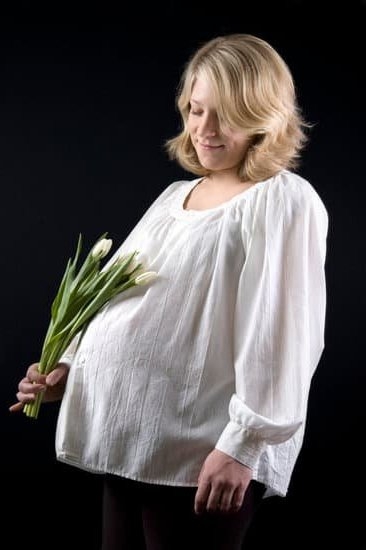No period after pregnancy when to worry: The postpartum period is a time of significant physical and hormonal changes for women, including the resumption of the menstrual cycle. For many new mothers, the absence of menstruation after giving birth can lead to worry and confusion. In this article, we will explore the normal postpartum changes in menstrual cycles, address common concerns about the absence of periods after pregnancy, and provide guidance on when to seek medical attention.
After childbirth, it’s normal for women to experience a delay in resuming their menstrual cycle. Factors such as breastfeeding, hormonal fluctuations, and individual differences can all play a role in when menstruation returns. Understanding these normal postpartum changes can help alleviate concerns and provide reassurance for new mothers.
However, there are also physical signs that may indicate a more serious underlying issue that requires medical attention. It’s important for new mothers to be aware of these warning signs and know when to reach out to their healthcare provider. Additionally, we will discuss the emotional and mental well-being aspect of postpartum hormonal changes and provide resources for managing stress and anxiety related to reproductive health.
Normal Postpartum Changes
After giving birth, it is entirely normal for a woman’s menstrual cycle to undergo significant changes. The typical timeline for resuming menstruation after childbirth varies from person to person. Some women may start their period as soon as six weeks postpartum, while others may not experience menstruation for several months. This variation is entirely normal and can be attributed to several factors, including breastfeeding, hormonal fluctuations, and the body’s natural healing process.
Factors Delaying Postpartum Periods
There are several factors that can cause delays in postpartum periods. One common reason is breastfeeding, as the hormone prolactin, which stimulates milk production, can suppress ovulation and menstruation. Additionally, stress and sleep disturbances associated with caring for a newborn can disrupt the hormonal balance necessary for regular menstruation. It’s important to remember that these delays are usually temporary and do not necessarily indicate an underlying health issue.
Resuming Regular Menstrual Cycles
For many women, resuming regular menstrual cycles takes time as the body adjusts and heals from childbirth. It’s important to remember that this process is unique to each individual and there is no set timetable for when menstruation should return. While it’s understandable to have concerns about no period after pregnancy when to worry; understanding the normal postpartum changes can provide reassurance for new mothers navigating this transition period.
Physical Signs to Watch For
During the postpartum period, it is common for women to experience changes in their menstrual cycle. These changes can include irregular periods, delayed menstruation, or in some cases, no period at all. While it is normal for the menstrual cycle to take time to regulate after giving birth, there are certain physical signs that women should watch out for when it comes to no period after pregnancy.
Potential Warning Signs
One of the physical signs to watch for when experiencing no period after pregnancy is excessive or prolonged bleeding. If you notice heavy bleeding that lasts longer than usual, or if you are passing large blood clots, it could be a cause for concern.
Additionally, experiencing severe abdominal pain or unusual pelvic cramping could indicate an underlying issue that needs medical attention. Another warning sign to look out for is a sudden onset of extreme fatigue or weakness, as this may be a symptom of anemia or hormonal imbalances.
When to Seek Medical Attention
It is important to seek medical attention if you are experiencing any of the aforementioned warning signs along with the absence of your menstrual period after pregnancy. It could be indicative of a more serious underlying issue such as postpartum hemorrhage, endometriosis, thyroid disorders, or polycystic ovary syndrome (PCOS).
Consulting with a healthcare provider will help in determining the cause and receiving appropriate treatment. Ignoring these symptoms and not seeking timely medical care can lead to further complications and affect overall health.
Importance of Regular Check-Ups
In addition to being aware of physical warning signs and seeking medical attention when necessary, it is crucial for women who have experienced no period after pregnancy to attend regular check-ups with their healthcare providers. These check-ups provide an opportunity for monitoring overall reproductive health and addressing any concerns related to postpartum menstrual changes. Regular discussions with a healthcare provider can help in identifying any potential issues early on and receiving necessary support and treatment.
Emotional and Mental Well-Being
During the postpartum period, women may experience a range of emotional and mental health changes due to hormonal fluctuations and the stress of new motherhood. It’s important to recognize and address these feelings in order to maintain overall well-being. Here are some ways to support your emotional and mental health after pregnancy:
1. Seek Support: Surround yourself with a supportive network of friends, family, and healthcare professionals who can offer guidance and understanding during this transition.
2. Prioritize Self-Care: Taking time for yourself is crucial for mental well-being. Whether it’s a short walk around the block, a relaxing bath, or a few minutes of meditation, finding moments of peace can make a big difference.
3. Communicate Openly: Be open and honest with your partner about how you’re feeling. Sharing your emotions can help you feel understood and supported during this time of change.
It’s normal to experience a rollercoaster of emotions after giving birth, but if you find that your feelings are overwhelming or persistent, it’s important to seek professional help. Postpartum depression is a serious condition that requires medical attention. Remember that taking care of your mental health is just as important as caring for your physical health during the postpartum period.
Breastfeeding and Menstrual Cycles
For many new mothers, the topic of breastfeeding and its impact on postpartum menstruation is a common area of concern. It is important to understand that the return of menstruation after pregnancy can vary significantly among women, especially for those who are breastfeeding. While some women may resume their menstrual cycles shortly after giving birth, others may experience a delay due to the hormonal changes associated with lactation.
One common misconception is that breastfeeding prevents ovulation and therefore delays the return of menstruation. While it is true that breastfeeding can suppress ovulation in some women, it is not a foolproof method of birth control. This means that even if you are exclusively breastfeeding, there is still a possibility of ovulation and therefore the potential for menstruation to return sooner than expected. It’s important to discuss contraceptive options with your healthcare provider to prevent any unwanted surprises.
Additionally, the frequency and intensity of breastfeeding can impact the resumption of menstrual cycles. Women who breastfeed frequently throughout the day and night may experience a longer delay in the return of their period compared to those who breastfeed less often or supplement with formula. Understanding these nuances can help manage expectations and alleviate concerns about when to expect the return of menstruation after pregnancy.
It’s also worth noting that every woman’s body responds differently to the hormonal changes brought on by breastfeeding. Some may find that their menstrual cycles resume as soon as they start weaning their baby off breast milk, while others may continue to experience delays even after discontinuing breastfeeding altogether.
As such, it’s important for new mothers to maintain open communication with their healthcare provider regarding any concerns about no period after pregnancy and when to worry about potential underlying issues related to postpartum menstruation.
Medical Conditions and Risk Factors
After giving birth, it is common for women to experience changes in their menstrual cycle due to the hormonal fluctuations that occur during pregnancy and lactation. However, in some cases, the absence of menstruation can be attributed to underlying medical conditions or risk factors that may require medical attention.
One potential cause of no period after pregnancy when to worry could be a condition called postpartum thyroiditis. This condition involves inflammation of the thyroid gland after childbirth, which can lead to symptoms such as fatigue, weight changes, and disruptions in the menstrual cycle. It is important for women experiencing these symptoms to consult with a healthcare provider to receive proper evaluation and treatment.
Additionally, polycystic ovary syndrome (PCOS) is another common health issue that can affect postpartum menstrual cycles. PCOS is characterized by hormonal imbalances that can lead to irregular periods or the absence of menstruation altogether. Women with a history of PCOS should be particularly mindful of any changes in their menstrual patterns after giving birth and seek medical guidance if necessary.
Regular check-ups with a healthcare provider are essential for monitoring postpartum health and addressing any concerns related to menstrual irregularities. By staying proactive about their reproductive health, individuals can receive timely support and interventions if there are any underlying medical conditions affecting their postpartum menstrual cycles.
| Potential Causes | Recommendations |
|---|---|
| Postpartum thyroiditis | Consult with a healthcare provider for evaluation and treatment |
| Polycystic ovary syndrome (PCOS) | Maintain regular check-ups with a healthcare provider; seek medical guidance if necessary |
Personal Stories and Experiences
After giving birth, many women experience changes in their menstrual cycles. For some, the return to a regular period happens relatively quickly, while for others, it can take several months. However, for some women, there may be concerns about no period after pregnancy, leading to worries about potential underlying health issues. In this section, we’ll explore personal stories and experiences related to postpartum menstrual changes.
- For Amanda, her period returned just six weeks after giving birth. She was initially surprised by how soon it came back but was relieved that her body seemed to be getting back to its normal rhythm relatively quickly.
- On the other hand, Sarah didn’t see any signs of her menstrual cycle returning until almost a year after giving birth. She admits that she was worried at times about why it was taking so long, but after consulting with her healthcare provider, she learned that this can be perfectly normal for some women and may not necessarily indicate a problem.
- Jessica experienced irregular periods and heavier flows after having her baby. This led her to seek medical advice and discover that she had developed a condition called postpartum hemorrhage. Through treatment and support from her healthcare team, she was able to manage this issue effectively.
These personal accounts highlight the wide range of experiences women can have when it comes to their postpartum menstrual cycle. It’s important for individuals to remember that each person’s body is different and will respond in its own unique way after pregnancy.
By sharing these stories, we hope to offer reassurance and support to those who may be concerned about their own postpartum menstrual changes. Remember, if you have any worries or questions about your own situation, don’t hesitate to speak with a healthcare professional for guidance and peace of mind.
Conclusion
In conclusion, it’s important for new mothers to understand that the absence of a period after pregnancy is not always cause for immediate concern. The postpartum period brings about significant changes in a woman’s body, including the resumption of menstruation. It’s normal for this process to be delayed due to various factors such as breastfeeding, hormonal fluctuations, and overall physical recovery.
However, it’s crucial to remain vigilant about any potential warning signs that could indicate a more serious underlying issue. Physical symptoms such as persistent pelvic pain, abnormal bleeding, or sudden onset of intense headaches should prompt a visit to a healthcare provider.
Additionally, paying attention to one’s emotional and mental well-being during this time is equally important. Postpartum hormonal changes can significantly impact mental health, and seeking support from professionals or support groups can help manage stress and anxiety related to reproductive health.
Ultimately, every woman’s postpartum experience is unique, and it’s essential to prioritize regular check-ups with a healthcare provider to address any concerns about the absence of a period after pregnancy. By staying informed and seeking appropriate medical attention when necessary, new mothers can navigate the postpartum period with confidence and peace of mind while taking care of both their physical and emotional well-being.
Frequently Asked Questions
When Should I Worry About No Period After Baby?
After giving birth, it’s common for your period to be irregular or even absent while breastfeeding. However, if you haven’t had a period after six months postpartum, it’s best to consult with your healthcare provider to rule out any underlying issues.
How Long After Not Getting My Period Should I Worry About Pregnancy?
If you have been sexually active and have missed your period, it’s recommended to take a pregnancy test after one week of your missed period. If the test is negative and you still haven’t gotten your period after three consecutive cycles, it’s important to seek medical advice.
Why Haven’t I Got My Period Back After Giving Birth?
The absence of menstruation after giving birth can be due to various reasons such as breastfeeding, hormonal imbalances, stress, or underlying health conditions. It takes time for the body to regulate menstrual cycles after childbirth, so patience is key.
However, if you’re concerned about the delay in getting your period back, it’s essential to discuss this with your healthcare provider to address any potential issues.

Welcome to my fertility blog. This is a space where I will be sharing my experiences as I navigate through the world of fertility treatments, as well as provide information and resources about fertility and pregnancy.





